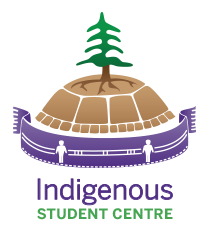Indigenous Admissions Access Category - Undergraduate Admissions
Background
Western University values Indigenous perspectives and is committed to creating access and opportunities for Indigenous people. This commitment involves offering equitable undergraduate admission pathways for Indigenous applicants that recognize their unique experiences. The purpose of the Indigenous Admission Access Category is to encourage undergraduate applications from Indigenous people while providing additional support throughout the application and admissions process. You can apply through this category alongside your Ontario Universities' Application Centre (OUAC) application to start your journey with us.
In alignment with Western’s Policy for Affirming Declarations of Indigenous Citizenship or Membership , those who request access as Indigenous applicants must comply with the policy.
Application Process – 3 Step Process
- Applicants must provide consent to be considered under this Indigenous Admission Category and agree to the collection of personal information by completing the online consent form;
- Applicants must upload a statement of relational positionality, which includes a demonstration of lived experience and details outlining the applicant’s lineal descent, as per guidance provided in the List of Approved Modes of Affirmation; and
- Applicants must upload any two documents demonstrating proof of citizenship or membership to the Indigenous Nation claiming them, as per the List of Approved Modes of Affirmation.
Applicants must upload these three key documents directly to the online consent form.
List of Approved Modes of Affirmation
In accordance with Western University’s Policy for Affirming Declarations of Indigenous Citizenship or Membership, Indigenous identity documentation includes but is not limited to the list below:
Indigenous identity documentation includes but is not limited to the list below:
- A copy of a federal/ national/ state recognized citizenship card or official documentation belonging to the individual’s biological parent or grandparent – together with proof of connections/ lived-experience to the community.
- Letters of reference provided by Indigenous relatives or members of a national/ federal/ state recognized community who are familiar with the individual’s lived experiences and relational positionality.
- Letter of reference or documentation provided by a state-recognized Indigenous membership authority (e.g., letter from Band Membership Officer).
- Letters of reference from community-recognized Traditional Community leaders (e.g., Clan mothers, Lodge Keepers).
- Certificate of Indian Status from First Nations who are federally recognized and those listed on the Indigenous and Northern Affairs Canada website.
- A copy of Certificate of Indian Status (i.e., status card) of the individual’s biological parent or grandparent who also has federally recognized Indian status – together with proof of lineal family connection.
- An affirmation letter from a national/ federal/ state recognized governance entity indicating that the applicant is a ‘Non-Status’ First Nation person.
- Membership proof from a list of federally or state recognized Métis organizations in Canada, specifically:
- Manitoba Métis Federation
- Métis Nation British Columbia
- Métis Nation of Alberta
- Métis Nation of Ontario
- Métis Nation-Saskatchewan
- Northwest Territory Métis Nation
- American Indian, Alaskan Native, or Native Hawaiian citizenship document from tribes that are state or federally recognized.
- A Nunavut Trust Certificate card, Inuit roll number, Inuit Beneficiary Card, or any other proof accepted by state-recognized Inuit communities/organizations.
- Written confirmation letter of Indigenous ancestry from the Department of Indigenous Services Canada.
- International or Global Indigenous peoples’ (as defined by the United Nations Declaration on the Rights of Indigenous Peoples (UNDRIP)) with accepted membership cards and documentation supporting the individual’s claimed relational positionality.
- Other membership cards or letters by state recognized Indigenous communities/organizations.
- Copy of Long-Form Birth certificate – together with a copy of the individual’s parents’ or grandparents’ documentation that affirms claims to Indigeneity.
- Genealogy trees that contain certified information to confirm lineage.
If you have any concerns about the affirmation requirement or face circumstances that have prevented you from obtaining the identification mentioned above, please contact indigenous.affirmation@uwo.ca
Confidentiality
All personal documentation is kept in the strictest confidence and securely housed within the Office of Indigenous Initiatives. This information is collected under the authority of the University of Western Ontario Act, 1982, to offer equitable admission pathways for Indigenous applicants.
Frequently Asked Questions
I do not wish to be considered under the Indigenous Admissions Access Category, but I have a To Do item on my Student Center. Is this holding up my application to Western?
No, your application will still be considered with the general pool of applicants. To remove the “Indigenous Documentation” To Do item from your Student Center, please contact indigenous.affirmation@uwo.ca
I have submitted my consent form and required documentation, but the To Do item is still showing on my Student Center. When will this be updated?
Once your submission is received and processed, the status of your To Do item will change from “Missing” to “Received.” Please allow 10-15 business days for this update to appear in your Student Center.
If I choose not to apply through the Indigenous Admissions Access Category, can I still access the Indigenous Student Centre?
Absolutely. The Indigenous Student Centre is open to all self-identifying Indigenous students at Western. You are welcome to access the space, services, and programming at any time during your studies.
I previously applied to Western. Do I need to resubmit my consent form?
Yes, a new consent form is required for each application cycle. If you are reapplying to Western, please submit the form for the current academic year.
What if I’m unable to obtain two documents listed in the approved modes of affirmation?
If you are facing barriers in obtaining the required documentation, please contact indigenous.affirmation@uwo.ca. We are committed to working with applicants to support their access and provide guidance where needed.
For more information, contact the Office of Indigenous Initiatives:
Office of Indigenous Initiatives, Western University
Western Student Services Building, Room 2150
1151 Richmond Street
London, Ontario N6A 3K7
Telephone: 1-519-661-4095
Toll free: 1-888-661-4095
Fax: 1-519-850-2578 (confidential fax)
Email: indigenous.admissions@uwo.ca
indigenous.uwo.ca


